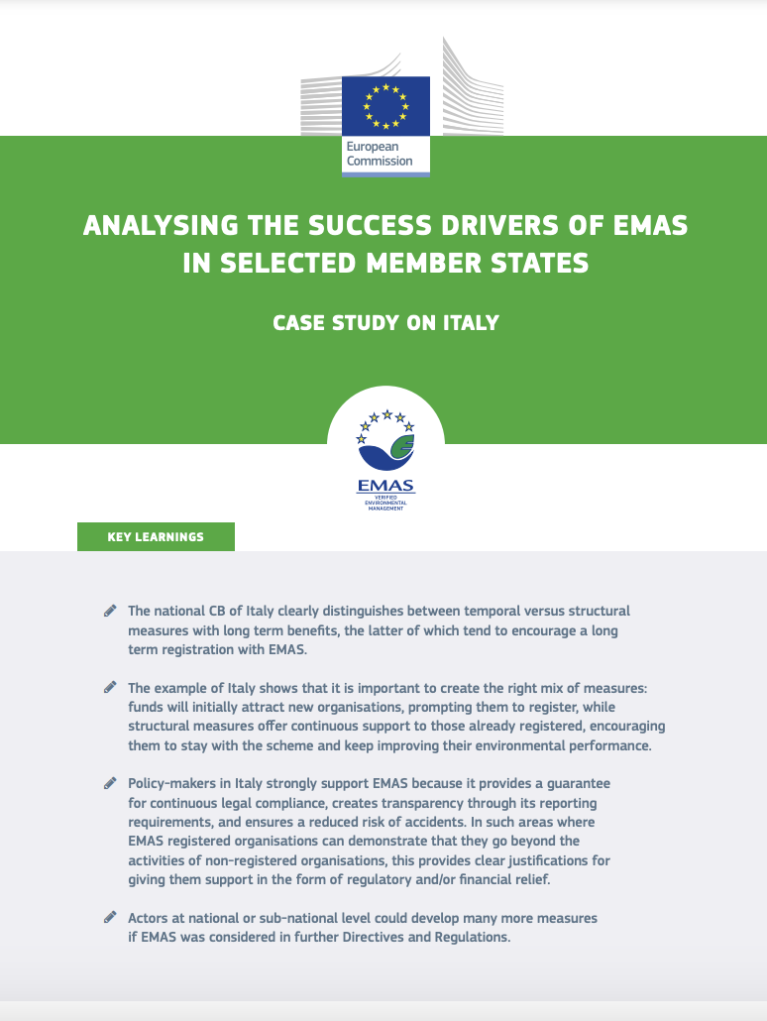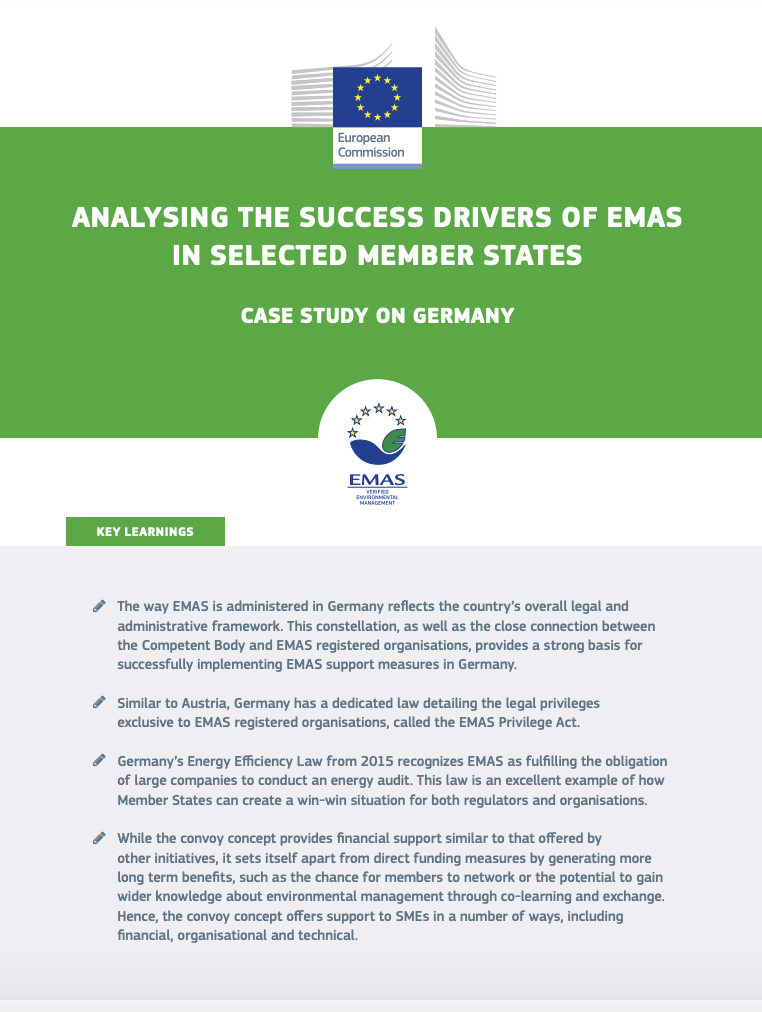
Discover the secrets to environmental success with EMAS. In our collection of EMAS Success Stories and Case Studies, we showcase remarkable sustainability achievements of EMAS organisations.

Our Success Stories feature the journeys of individual EMAS organisations as they embrace circularity, energy efficiency, and climate neutrality. Read about their sustainability approaches, motivations for joining EMAS, and impressive results. Be inspired by their best practices and future plans.
Our Case Studies provide in-depth analyses of specific topics and sectors. These studies highlight organisations with exemplary practices in place. Learn from their experiences in areas such as education and agriculture, or how to craft impactful environmental statements, involve employees, and more.
Both formats offer valuable guidance and inspiration for those seeking to make a positive environmental impact through EMAS.
Success Stories
-
EPSON Iberica
How to engage external stakeholders in your company’s sustainable projects? Collaborative initiative examples from Epson Iberica.

- General publications
- Directorate-General for Environment
In Spain, Epson (Epson Ibérica) has been present for more than 33 years, operating from six sites with a workforce of 111 employees. The company’s philosophy is centered around generating efficient, compact and precise innovations while actively engaging in sustainability practices.
-
University of Gothenburg
Research, education, and collaboration for sustainable development are a vital part of the University of Gothenburg’s vision.
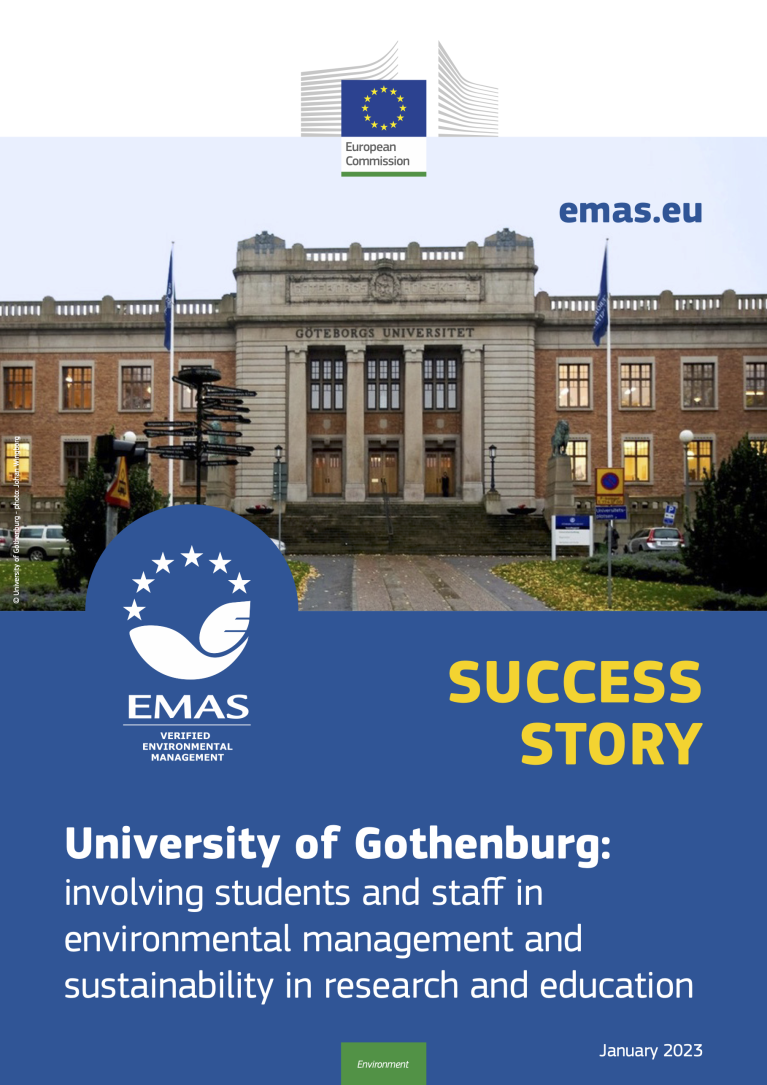
The University of Gothenburg is a multidisciplinary university that dates back to 1891. We consist of eight faculties and 38 departments. We also have a large number of centres of research and expertise that span across several academic disciplines. These disciplines serve as a meeting point for students, researchers and representatives from the commercial, industrial, and public sectors. Around 55 000 students and 6 600 staff study and work here, making us one of the largest universities in Northern Europe.
-
Glöckner Natursteine
Pioneering sustainable craftsmanship “Preserving the old - creating new things”
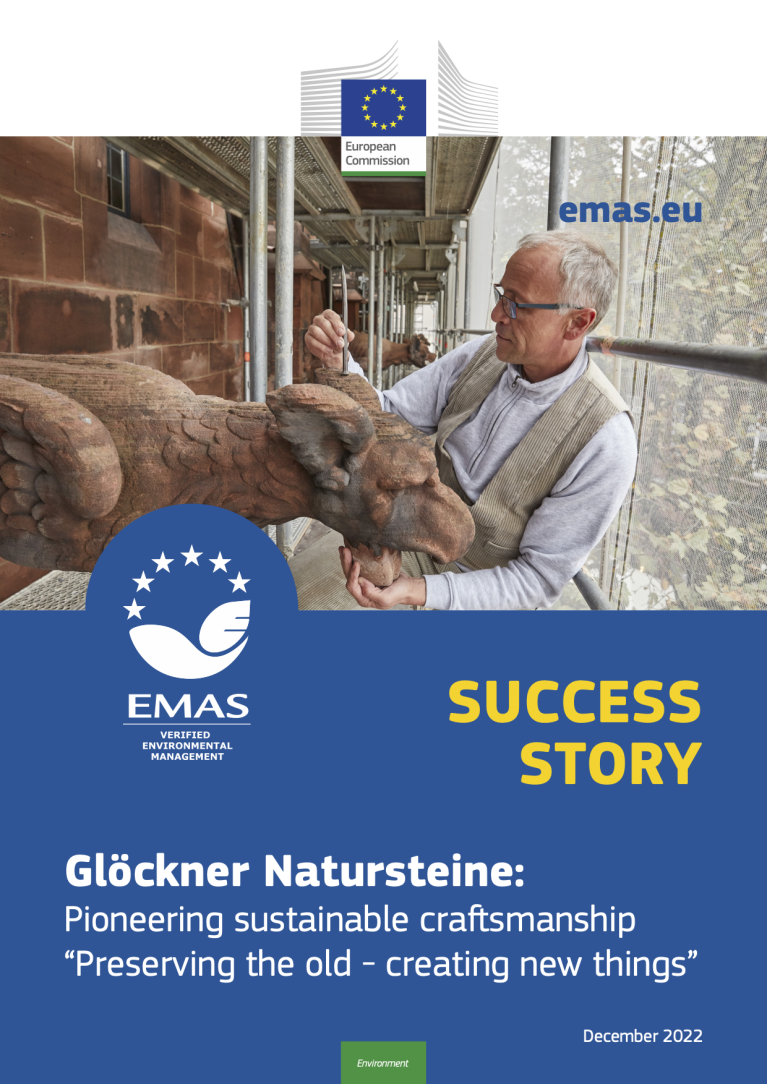
Founded in 1967, the stonemason company Glöckner Natursteine specialises in the processing of natural stones, in particular the restoration of sandstone facades. Under the guiding principle “Preserving the old - creating new things”, the Saarland craft business is geared to the requirements of sustainability. Their focus is on reuse and use of regional stones instead of Asian imports. This strengthens regional value chains and avoids long transport routes.
-
Institut Català de la Salut (ICS)
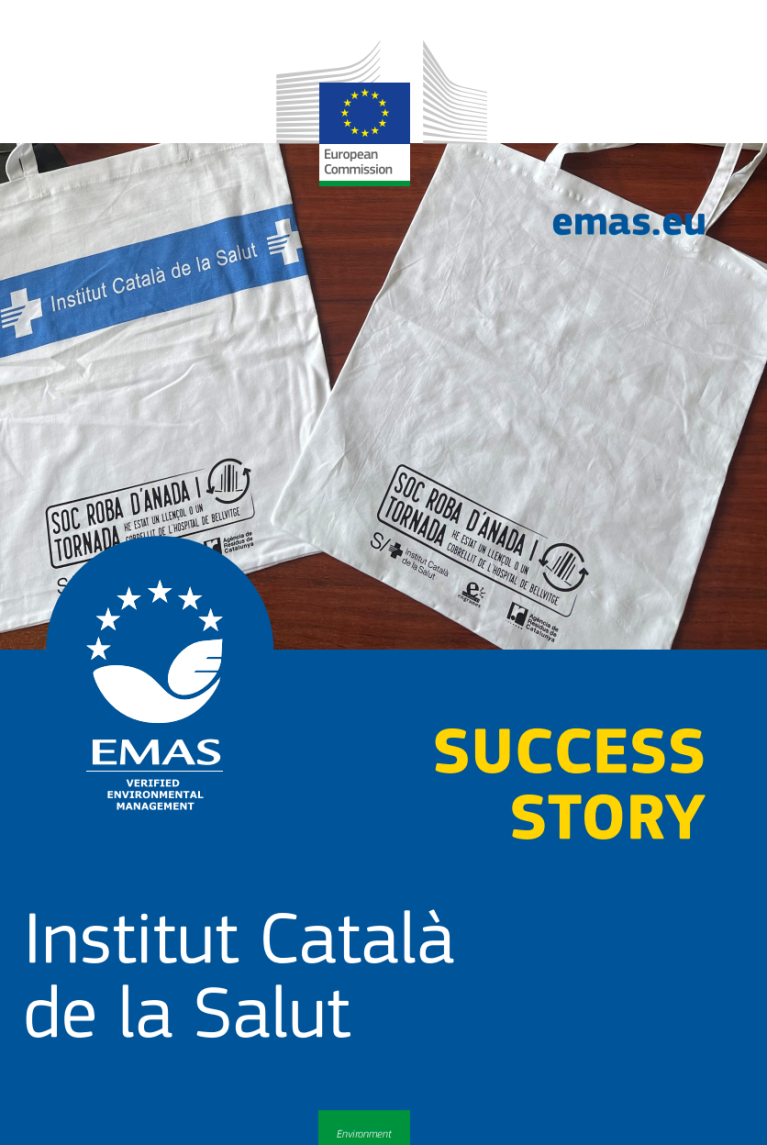
The Institut Català de la Salut (ICS) is the biggest public institution providing health care to the population in Catalonia, and it also develops training and research in the field of health.
-
Itelazpi
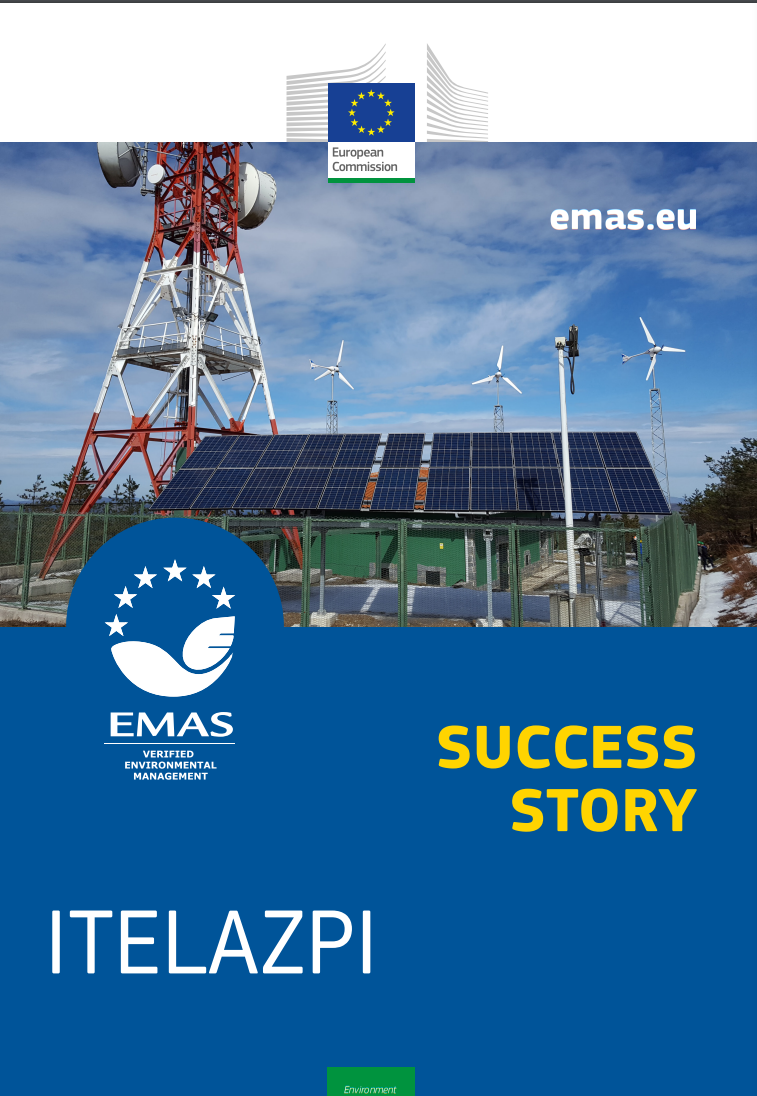
ITELAZPI is the Public Company that manages the Basque Government’s telecommunications infrastructure network to offer public services to citizens through a series of radio communication centers. The organization is attached to the Directorate of Information and Communication Technologies of the Basque Government’s Department of Public Governance and Self-Government
-
Museu de la Vida Rural
The museum of rural life: bringing debate, knowledge and environmental education to citizens through culture.
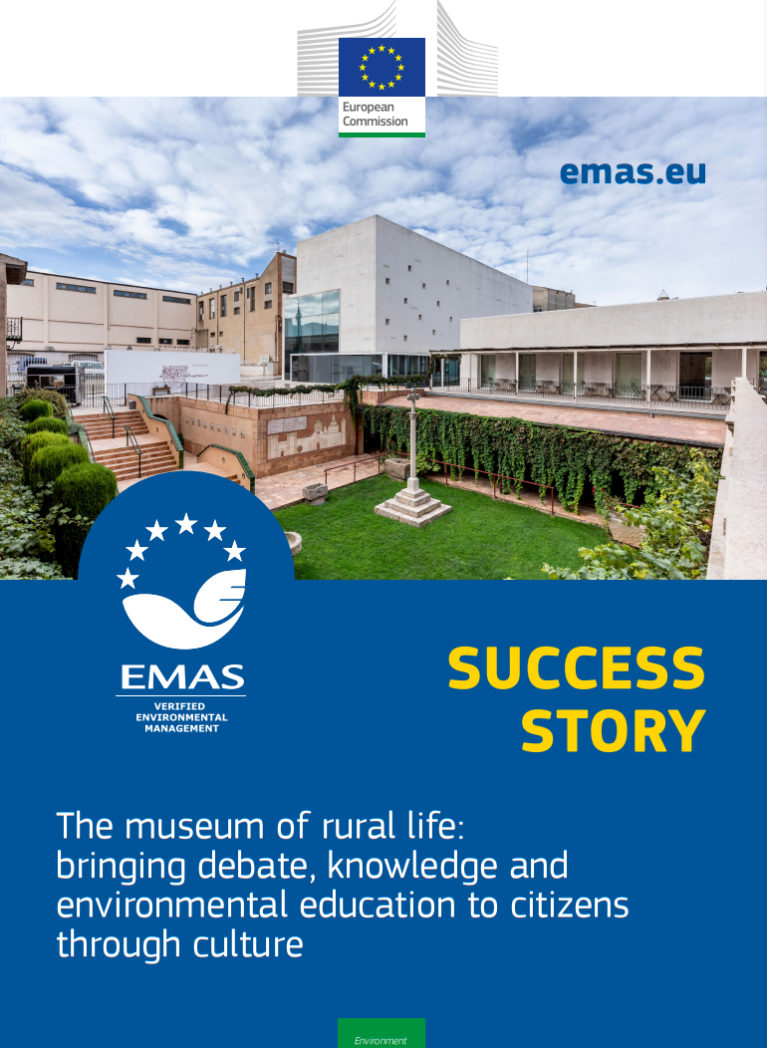
The Museu de la Vida Rural (Museum of Rural Life) is a 5,500 m2 cultural center dedicated to the preservation of the memory of the rural world, is located in l’Espluga de Francolí (Conca de Barberà, Catalonia) and was created in 1988 on the initiative of Lluís Carulla i Canals. It currently has an extensive permanent collection that allows you to travel through time, across the history and knowledge of the Catalan and Mediterranean rural world.
-
VO
Being a driver of innovation and change for the communications sector.

VO is a communications group that has been based in Brussels for the past 30 years. We support private and institutional clients with everything from advice and strategy to implementation, while providing communication in all its forms (events, graphic, digital, artistic and technological media), including content creation. The group comprises 6 agencies with complementary expertise, grouped together at the rue de Stalle office, benefiting from a back office and consistent centralised management.
EMAS Case Studies
-
Case study "EMAS and the food and beverage sector"
Economically, the food and beverage sector has a strategic role to play in the EU market. From an environmental view, the sector generates various impacts on the environment. Mitigating these impacts is thus critical for this sector to pave the way to sustainability. In this case study three organisations from the food and beverage sector report about their experiences with EMAS. Based on this, an overview of the benefits EMAS has to offer for the food and beverage sector is given.
Download the case study here (2021):

-
Case study "EMAS and the education sector"
From an environmental point of view, education and training centres, like many other activities, generate various impacts on the environment related to their activities and the management of the different sort of premises they build or occupy. In this case study three organisations from the education sector report about their experiences with EMAS. Based on this, an overview of the benefits EMAS has to offer for the education sector is given.
Download the case study here (2021):
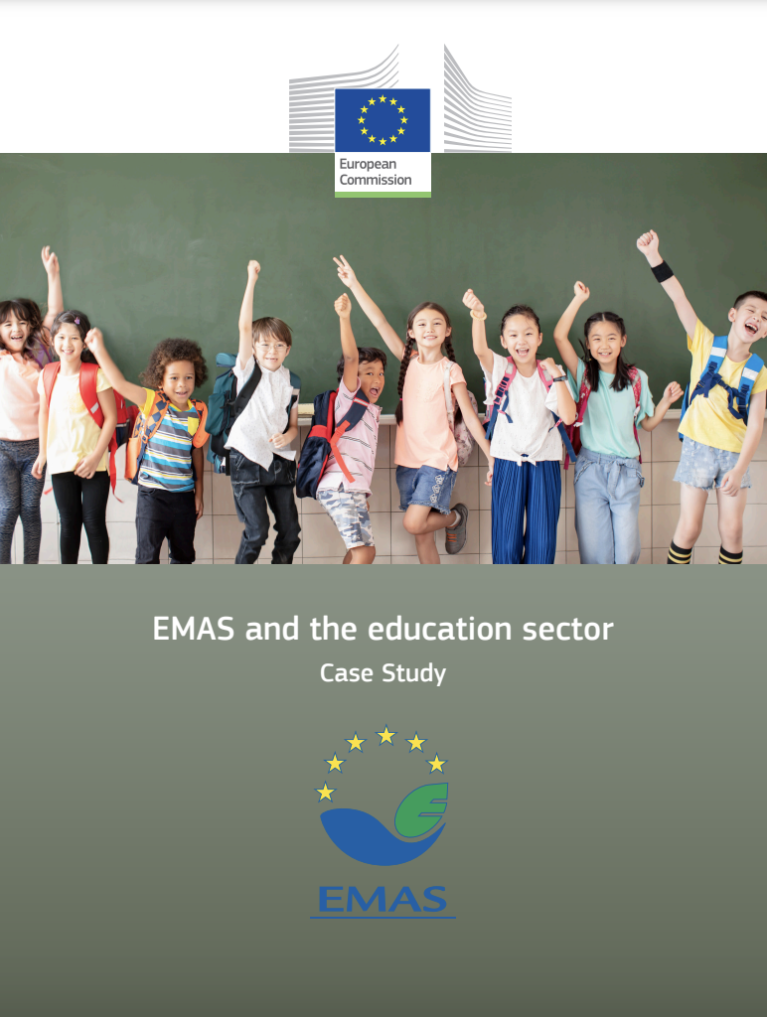
-
Case study "EMAS and the agricultural sector"
This case study presents best practices from organisations operating in the agricultural sector.
Download the case study here (2021):
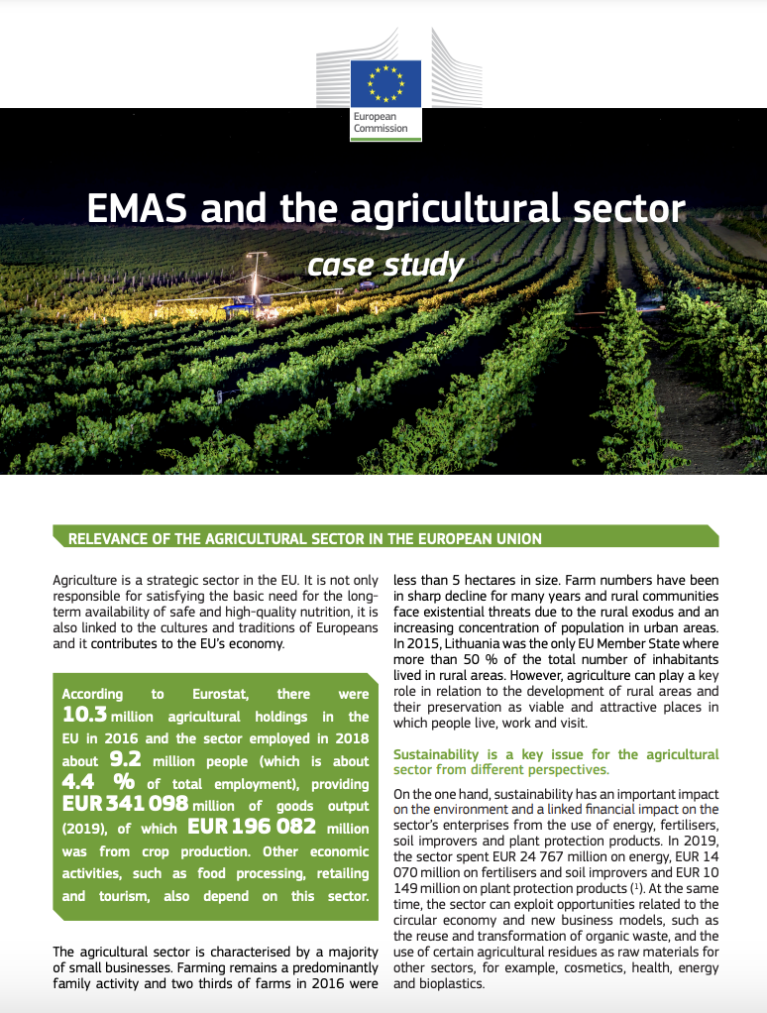
-
Case study "Writing and disseminating the environmental statement"
This case study shows best practices from organisations in terms of content, presentation and dissemination of the environmental statement and gives recommendations.
Download the case study here (2020):
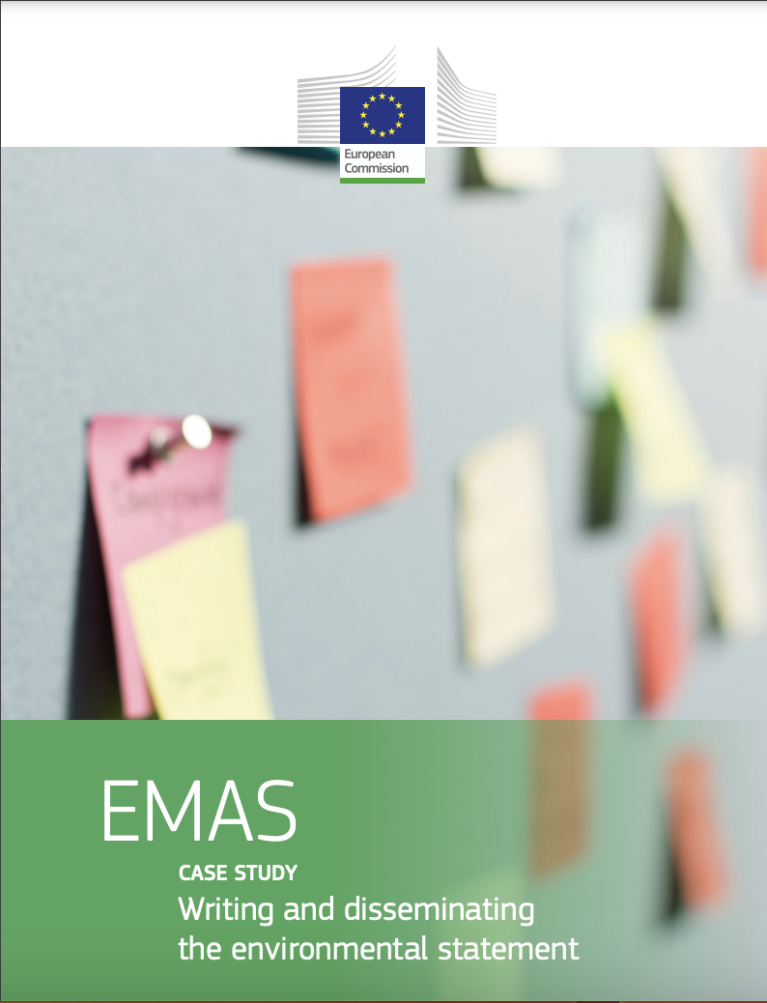
-
Case study "Involving public bodies and cooperating institutions in the promotion of EMAS"
This case study presents best practices from Competent Bodies in the Member States to promote EMAS with the help of public bodies and other institutions.
Download the case study here (2020):
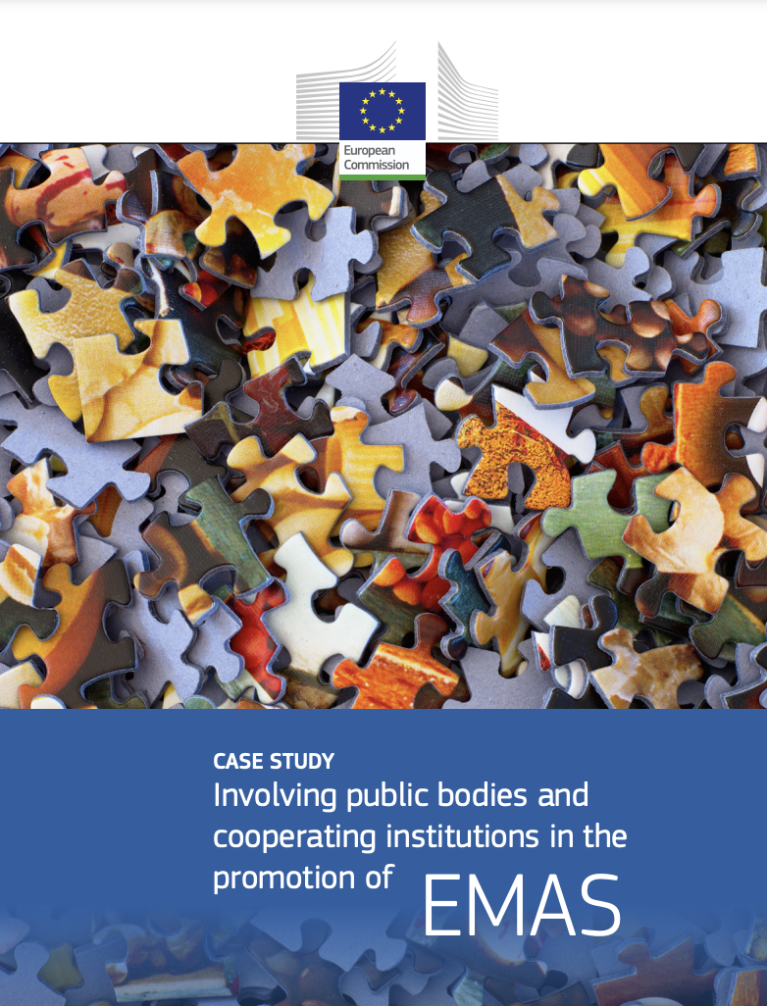
-
Case study "EMAS' role in the transition to sustainable finance"
This case study summarises the current developments in the European Union regarding sustainable finance and highlights the relevance of sustainable management and the potential role of EMAS.
Download the case study here (2020):

-
Case study "EMAS and the tourism sector"
Europe is the world’s leading tourist destination, leading to various environmental impacts. In this case study four organisations from the tourism sector report about their experiences with EMAS. Based on this, an overview of the benefits EMAS has to offer for the tourism sector is given.
Download the case study here (2020):

-
Case study "EMAS as a driver of change"
For the 2019 edition of the EMAS Awards, the European Commission acknowledged the achievements of EMAS-registered organisations that implemented EMAS as a driver of change towards sustainable transition through a long-term holistic vision for a positive impact on sustainable development as a whole. This case study presents best practice examples from the 2019 EMAS Awards nominees.
Download the case study in French (2020):
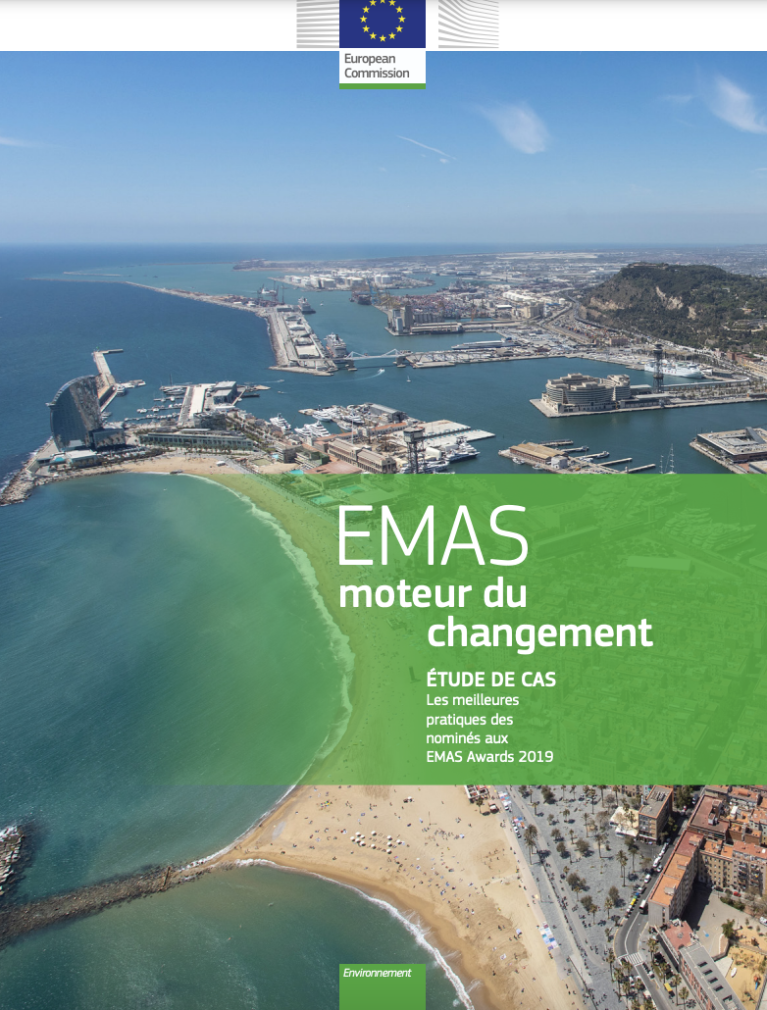
-
Case study “EMAS in the waste sector”
The waste sector is essential to the economy and sustainable development of the European Union. Yet it also faces strict regulations and pressure from public authorities, local communities and business partners to improve its environmental performance. EMAS can help organisations from the sector monitor their legal compliance and reduce their environmental impacts. The case study uses the examples of URBASER, CLD and the Val di Non community to illustrate the benefits of EMAS.
Download the case study here (2018):
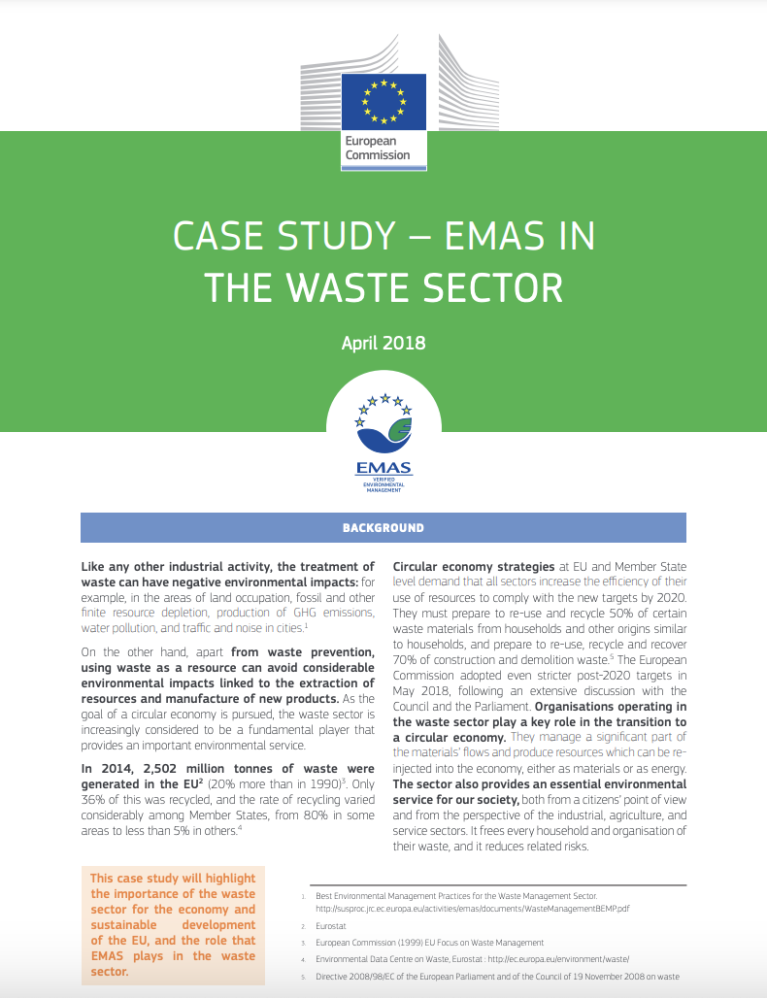
-
Case study “Involving employees in implementing EMAS”
This case study shows the importance of employee participation and illustrates different ways to succeed at it.
Download the case study here (2018):
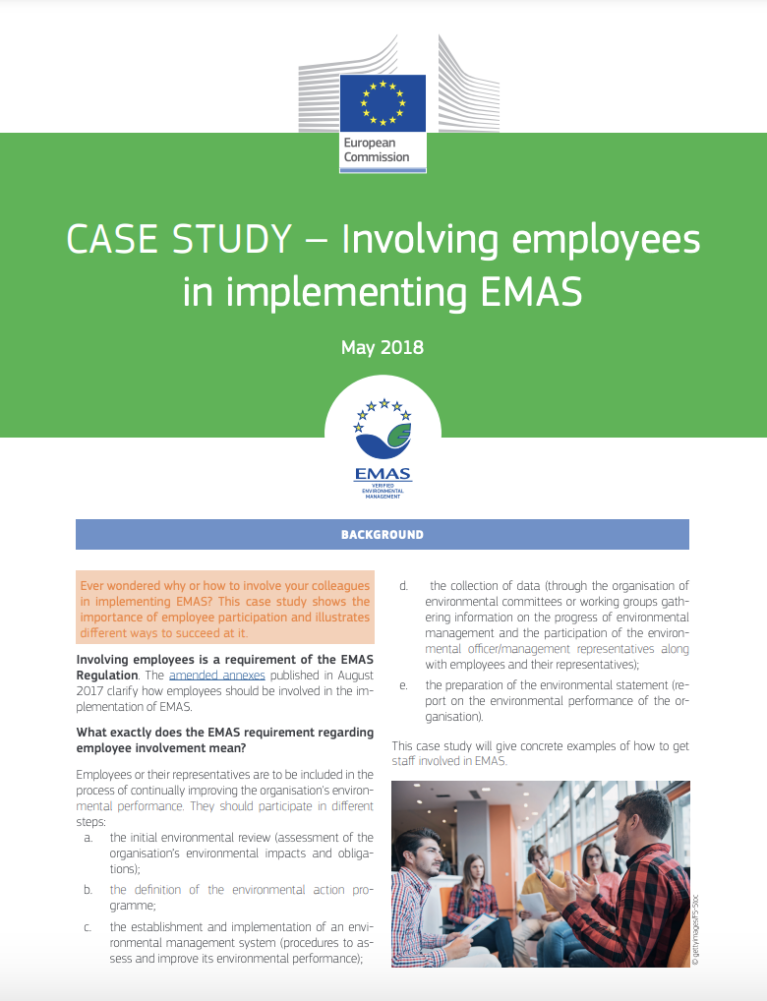
-
Drivers for EMAS Success: 3 Case Studies of EMAS implementation in Austria, Germany and Italy
The brochure Analysing the Success Drivers of EMAS in Selected Member States consists of three individual case studies carried out in Italy, Austria and Germany. The case studies investigate key drivers and initiatives that have allowed these Member States to achieve a highly successful uptake of EMAS.
You can download the complete brochure or the individual case studies: case study on Italy, case study on Austria, case study on Germany.

